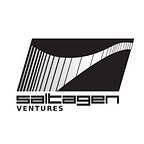Canada’s Narwhals or Silicon Valley’s Unicorns?
Over the past decade, the largest city in Canada has been growing and becoming one the largest technology hubs in the world. Although Toronto is known for its lively tourist attractions and their world renowned CN Tower, it is also known for its growth in innovation in technology, especially within the artificial intelligence and machine learning sectors. The successes for the ecosystem is credited towards their well-established universities to government funding and their talent pool. In fact, on some levels, the city is now considered as the next Silicon Valley, and let’s take a look at why that is.
Immense growth of talent pool and tech sector
Over the past couple of years, the federal government announced $900 million in funding to prestigious Canadian universities such as The University of Waterloo to enable them to become world-leading research centres. With 3 universities for artificial intelligence, big data research and Transform Quantum Technologies, they are quietly accomplishing their goal of turning Canada into an innovation hub for deeptech and quantum technologies.
These world-class colleges have not only helped in research and development, but they have also been able to produce a great flow of talent for the sector. According to CBRE’s 2020 Tech Talent Report, Toronto ranks at top 5 cities for tech talent, with New York ranking at 5th place. This trend has also been seen between 2012 and 2017, tech employment in Toronto increased by 51.5%, in other words, 8.9% of total employment in Canada.
Inflow of VC funding
Canada’s startup tech scene has also attracted venture capitalists; in 2019, the number of deal sizes increased by 27% from $3.7B to $4.7B, and just to show the growing potential of the tech sector in Canada, 66% of VC funding was towards information and communications technology driven enterprises ($3.1B). Interestingly, between August to November, every 1 in 7 startups announced a deal size of more than $100 million. Not only are the deal sizes increasing in Canada, but also there is an increase in participation from VCs from the United States; in 2010, around 21% of Canadian VC activity had a US based investor which doubled in 2018 to 43.1% which continues to grow.
MNCs moving to Canada
The tech hub is not only for startups, it is also attracting large multinational corporations’ such as Amazon, Google and Microsoft. They are embracing the benefits of Canada’s talent pool and using it for their primary research.
Winnipeg is one of Canada’s fastest growing startup ecosystems with more than 60% growth over the past years. In 2019, Amazon Inc (NASDAQ: AMZN) opened its first office space for their Amazon Web Services business.
In 2016, Google opened a new AI lab in Montreal and invested $3.4 million in AI research. The investment aims to improve and aid their research in the field of artificial intelligence as Montreal is becoming a hotbed for AI startups as well as academic research.
Since 2013, Microsoft — one of the largest MNCs that have invested in the Canadian ecosystem, have acquired at least one Canadian company every year and majority of these companies are heavily invested into AI innovation and have integrated upcoming technologies into their operations.
Upon their acquisition of Maluuba, they have opened up an AI research and development centre and have invested north of $584 million in setting up their headquarters.
But the move to Canada is an ongoing phenomenon, in January 2020, Microsoft continued investing in the Canadian Cloud industry and more specifically in Vancouver which will support innovation in the growing sector.
One of the reasons these tech giants are conducting their research projects in Canada, is due to their Scientific Research and Experimental Development (SRED) tax credit program. Their SRED is known to be one of the most generous with offering companies up to 45% tax rebate, compared to Silicon Valley and other states in the United States that offer up to 13%.
The future of the Tech Sector in Canada
Over the past decade, Canada has produced some of the largest narwhals (otherwise known as unicorns) — most notably Shopify with a pre-IPO valuation of $1.27B (source) and with a current valuation of $115.19B (source). Whether Canada will become the next Silicon Valley, is hard to say but the growing interest in the Canadian tech ecosystem will continue to thrive with the support of government funding and growth of an incredible talent pool contributed by some of the top universities around the world.
